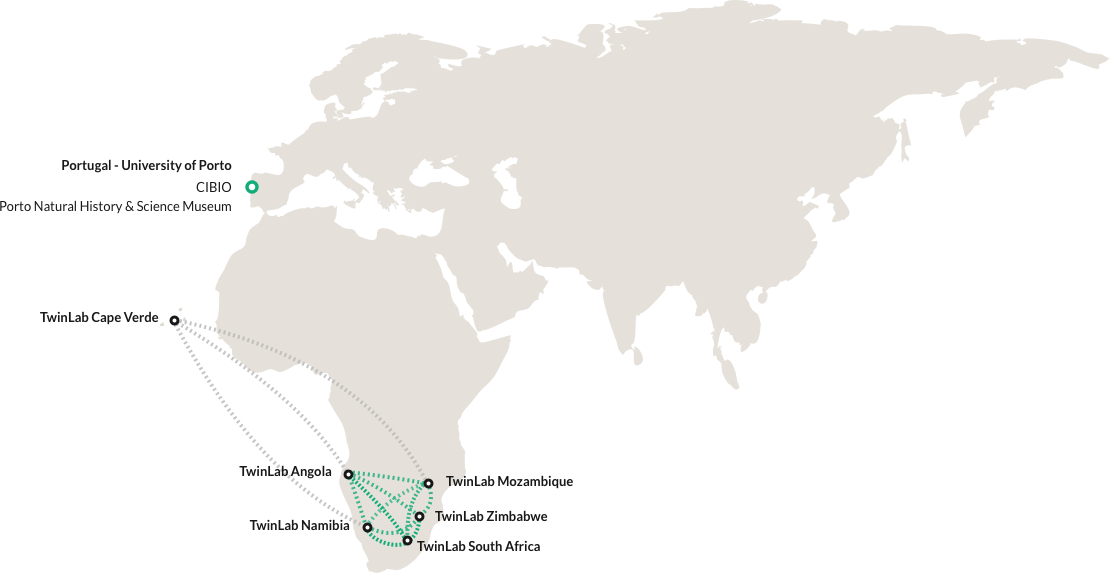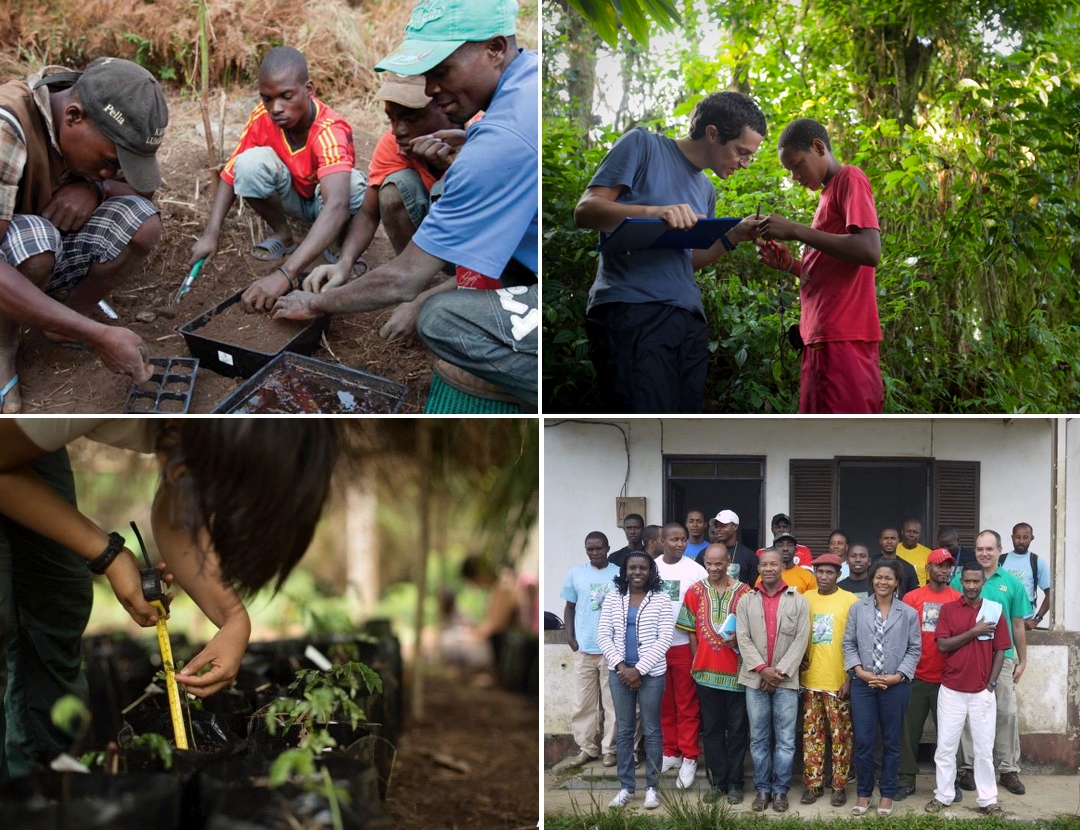TwinLabs

Since its creation, CIBIO-InBIO has been particularly focused in developing research activities within the framework of collaborative networks. In last decade, these networks have been extended to Africa, where CIBIO-InBIO has been established solid partnerships (TwinLabs) with several research institutions and universities with the aim of jointly develop research, advanced training and capacity building.
A Network of Biodiversity TwinLabs
A network that will boost capacity building & science and will lead to solid partnerships able to push forward the implementation of sustainable development strategies in Africa.

Our Philosophy
Any advances in biodiversity knowledge and in the ability to implement sustainable development strategies must be led by the people living in the countries where biodiversity lies.
Our Goal
Effective and high quality capacity building with positive impacts across the entire international network.
Our Approach
Capacity building will be tightly interwoven in real projects. This learning-by-doing approach allows addressing the biodiversity knowledge gap while directly training those involved. We will increase the returns of capacity building by integrating all these TwinLabs within a regional network of Biodiversity Centers, all twinned to a leading European Biodiversity Research Hub: CIBIO & the Museum of Natural History and Science of the University of Porto.
Our Twist
English is the international scientific language. English is also the main reason why people stay away from science in Portuguese-speaking African countries. We will break this barrier by making science in Portuguese.
This is a short-term strategy deemed essential to turn the tide on the lack of qualified people in the fields of biodiversity and sustainable development in Portuguese-speaking African countries.
Exchanges between the different centers of the network will be actively promoted. This will ensure both that science remains international even when done in Portuguese and will help start eroding the fear of the English language. In the next decade we expect Portuguese to be naturally replaced by English as the most effective language to exchange information at the international level.






